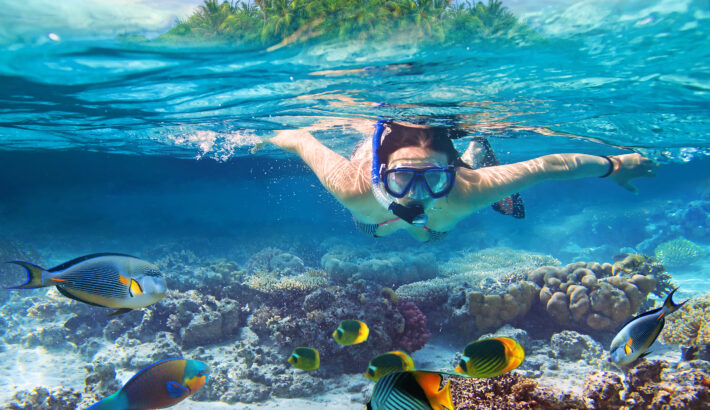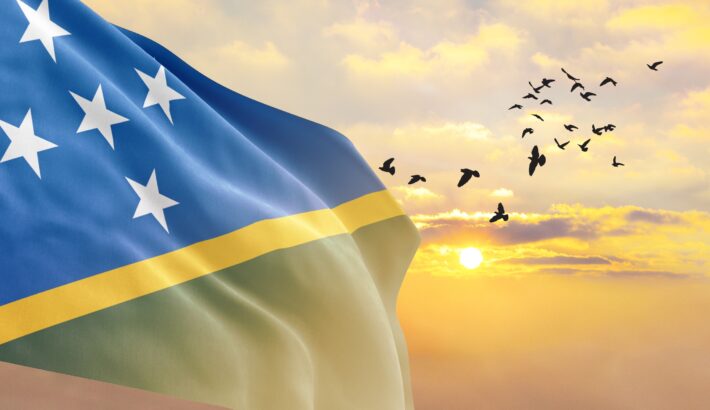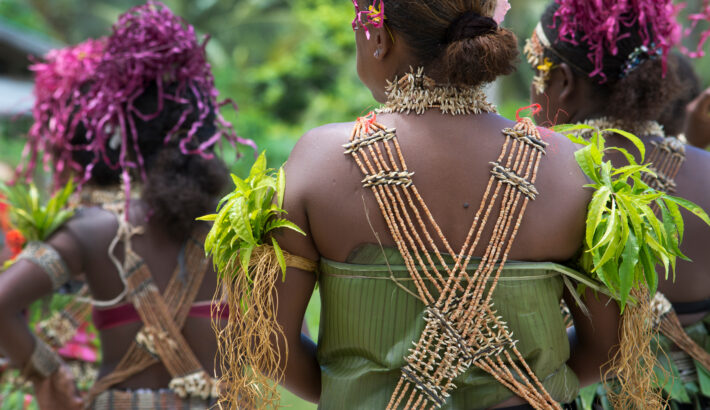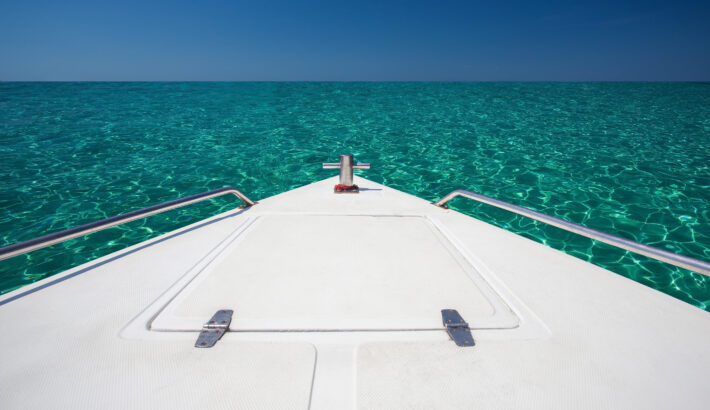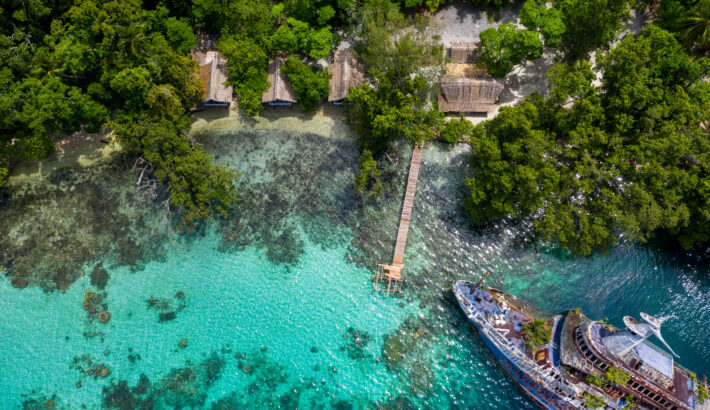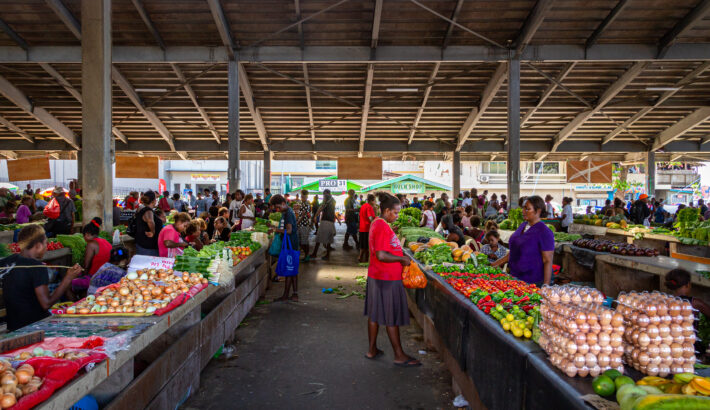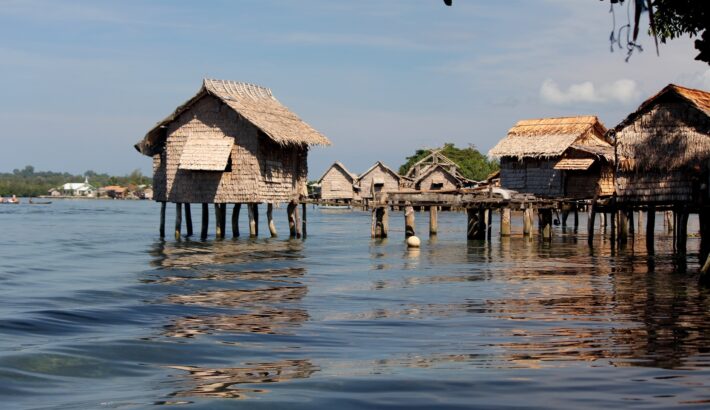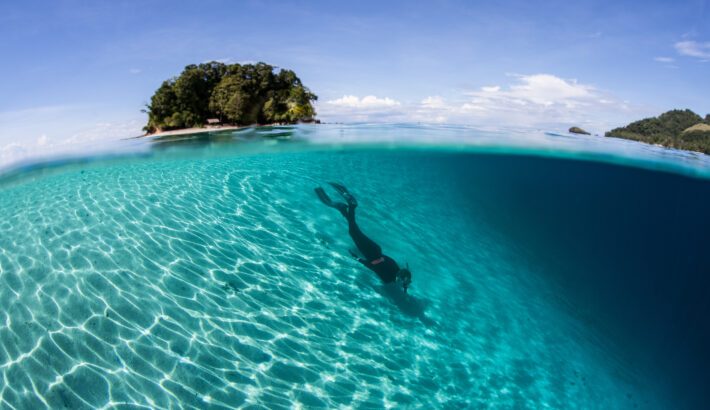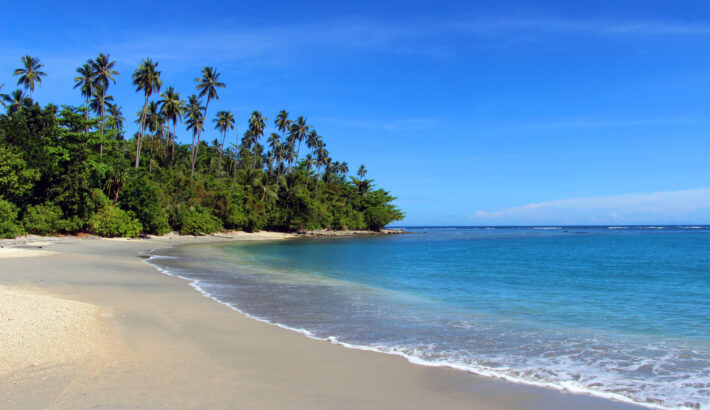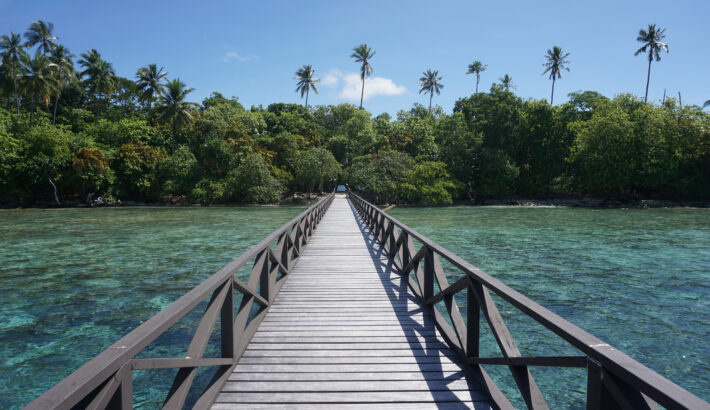Solomon Islands: Visa Information for Yachts & Cruise Ships
Download the PDF Version here: Solomon Islands Visa Information for Yachts & Cruise Ships
Visitor Guide: Visa Information for Yachts and Cruise Ships
Welcome to the Solomon Islands! As you prepare to anchor in our beautiful waters, please take a moment to review the visa and entry requirements to ensure a seamless arrival and enjoyable stay.
Health and Safety First
No pre-arrival health checks required. Your safety and wellbeing are paramount, and we are pleased to inform you that there are no specific health checks required before your arrival in the Solomon Islands.
Visa Requirements
Pre-Arrival Visa Application: Certain nationals (whether you are embarking or not) must obtain a visa before arriving in the Solomon Islands. If you or your passengers are from any of the following countries, please ensure to apply for a visa at least one week prior to your arrival:
- Bermuda,
- Chile
- China
- Colombia
- Hong Kong
- India
- Indonesia
- Mauritius
- Mexico
- Nepal
- Peru
- Philippines
- Russia
- Serbia
- South Africa
- Ukraine
- Uruguay
Application Details:
- Submission: A copy of the passport must be sent to GS Agencies at least one week before arrival so we can apply for your visa.
- Fee: $800 SBD
- Processing Time: Allow 3-4 days for visa processing.
Visas On Arrival: Travellers from countries not listed above can receive their visa stamps directly on arrival. Please ensure a complete passenger and crew list is available and submitted to immigration officials when they board.
Special Instructions for Fly-In Passengers:
If any crew members or passengers are flying into the Solomon Islands with the intention to embark on a vessel and possess only a one-way flight ticket, it is essential to Notify GS Agencies in advance. This will help us coordinate with immigration authorities to ensure entry is granted upon verification of onward or return travel arrangements.
For any queries or further assistance, please feel free to contact GS Agencies directly. We are here to help make your visit as smooth and enjoyable as possible!
Yacht Visitor Rules & Regulations Guide for the Solomon Islands
Download the PDF Guide: Yacht Visitor Rules & Regulations Guide for the Solomon Islands (GS Agencies PDF14)
Navigation and Yacht Clearance
- Required Documents: All vessels and crews must present normal entry documents for inward clearance. GS Agencies is on hand to assist with the submission of the documents for clearance and will make sure the customs, health, immigration, and biosecurity clearance officers are present when needed for each entry point. Please send all documents to [email protected] before arrival.
- Declaration of Goods: Only cargo on board must be declared. Our team can help you with the appropriate documentation to ensure compliance if needed.
- Designated Ports of Entry: The ports at Honiara, Noro, Gizo, and Lata are open for international yacht entry. We’ll guide you to the most convenient port for your needs.
Visa Information
- Visa Requirements: Crew members and passengers can generally obtain tourist visas that are valid for a maximum of 90 days, commencing from the first point of entry within the initial 12 months. An extended visa may be applied for if the travel exceeds 90 days within this period.
- Visa Application Process: All visa applications require a valid passport with at least six months remaining before expiry. We, at GS Agencies, will manage the application process for you. To facilitate this, we kindly request that you send over a clear image of all passport details for each crew member at least one week prior to your arrival.
- Visa Fees and Processing Time: The standard fee for visas is approximately $800 SBD, with a processing time of about 3 days. By enlisting our assistance at GS Agencies, you can be assured that all necessary preparations will be made before your vessel arrives in the Solomon Islands.
Customs and Immigration
- Duty-Free Regulations: Normal personal use items are allowed on board without duty. We can help identify which of your items qualify.
- Prohibited and Restricted Items: Drugs and firearms are not permitted. Contact GS Agencies at [email protected] for guidance on any other items you may be unsure about.
- Quarantine Procedures: All provisions are to stay on board. GS Agencies can guide you through quarantine protocols to avoid any complications.
Environmental Regulations
- Waste Disposal: Contact GS Agencies to arrange for the proper disposal of waste through biosecurity-approved methods.
- Sewage and Bilge Water Discharge: Such discharges are not allowed in Solomon Islands waters. We’ll inform you of the environmental protocols to follow.
- Protected Marine Areas: The Arnarvon Islands Turtle Sanctuary ( 7.45 S, Lon. 157.98 E) is an anchorage permission only area and this needs to be approved by Park Rangers, GS Agencies can organise this if needed.
Ports of Entry and Facilities
- Airports for Crew Changes: GS Agencies can facilitate transportation to and from airports in Gizo, Munda, Kirakira, Honiara, and Lata for crew changes.
- Marina and Repair Services: For repair water and fuel services these are available in Honiara and Noro. Repair services can also be found in Tulagi if needed. GS Agencies can connect you with these facilities if and when needed.
Safety and Security
- Navigational Hazards: We advise caution as some navigational beacons may be missing.
- Security Advice: The Solomon Islands are generally safe, but we can offer advice and assistance for any security concerns you may have.
- Emergency Contacts: GS Agencies can connect you to these contacts when needed. However, some main emergency contacts include: Maritime Honiara: 977, All Maritime Provinces: 21609, Police: 999, Hospital/Ambulance: 111.
Health and Medical Information
- Vaccination Requirements: Malaria precautions are recommended.
- Medical Facilities: GS Agencies can direct you to hospitals and medical services available in Munda, Gizo, and Honiara.
- Emergency Medical Evacuation: In case of a medical emergency, contact us immediately, and we will coordinate an evacuation if needed.
Communications
- Mobile Networks and Internet: 4G and internet are widely accessible. We can advise on purchasing local SIM cards for the best coverage.
- Radio Communication: The usual VHF radio communication requirements for yachts is used in our waters.
Financial Information
- Banking Services: Banks available include ANZ, BSP and BRED Bank. Currency regulations apply depending on amounts to be remitted outwards.
- Yacht Service Fees: We provide an estimate of all charges related to yacht services and clearances, which must be settled prior to arrival.
- Tipping Etiquette: Tipping is not a common practice in the Solomon Islands and is not encouraged.
Departure Procedures
- Clearing Out: GS Agencies is on hand to assist with the submission of the required documents for outward clearance and will make sure the customs, health, immigration, and biosecurity clearance officers are present when needed for each exit point.
- Export Regulations: Personal souvenirs are allowed. Export of WWII artefacts is prohibited.
Special Equipment and Activities
- Helicopters and Special Equipment: Inform us of any special equipment like helicopters, and GS Agencies will secure the necessary permissions from Civil Aviation and guidelines for your visit. We must obtain approval from department of Civil Aviation prior to your arrival – this will require pilot and machine details. Please allow up to 4 weeks for this process. The helicopter must enter and exit the country onboard the vessel to be considered part of the vessels asset inventory in order to operate. A fee for pilots temporary flying permit may be applicable.
- Submarines: If you’re planning to bring a submarine, GS Agencies will ensure smooth sailing by managing documentation and securing maritime approvals. We’ll streamline the process for leisure use, but additional information will be required for research-related activities. Expect to detail the submarine’s operational specifics to SIMA, such as intended activities, travel distance and duration, operating depth, and exact deployment locations—particularly to safeguard undersea cables and prevent pollution. A thorough understanding of the submarine’s capabilities and intended use, along with passenger details, is essential. To enrich your experience, we recommend having a local guide on board.
- Fireworks: Planning a fireworks display? GS Agencies will liaise with the local police to ensure you have the permissions needed. Fireworks may be hard to obtain the Solomon Islands so should be enquired about before arrival or precured elsewhere. If required, GS Agencies can not only provide a quote from local vendors in Honiara for the procurement of fireworks but also facilitate and manage the running of the fireworks display.
- Local Entertainment & Cultural Activities: GS Agencies works with many local partners around the Solomons that take pride in showcasing the vibrant culture. We can assist in arranging for local dancers and a variety of cultural activities that capture the spirit of our islands. While we can bring a taste of our traditions aboard your yacht, we often organise entertainment at scenic waterside locations, such as the picturesque Breakwater Café in Honiara. These settings offer not just a performance but an immersive cultural experience. To ensure a personalised and memorable event, please provide us with advance notice so we can tailor everything to your preferences and requirements. However, mosquito repellent is highly recommended for any outdoor activity after dark.
Discover Yachting in the Solomon Islands: Essential Reads and Resources
Download the PDF Guide: Discover Yachting in the Solomon Islands Essential Reads and Resources (GS Agencies PDF13)
Each of the below articles offers unique perspectives and valuable insights into yachting and sailing in the Solomon Islands, catering to a range of interests from luxury expeditions to intimate cultural encounters and adventurous explorations. Whether you’re an experienced sailor or a luxury traveller, these resources will help you plan an unforgettable journey through the enchanting waters of the Solomon Islands.
Yacht Charter Fleet’s Solomon Islands Guide: This comprehensive guide offers an in-depth exploration of the Solomon Islands as a prime yachting destination. From tips on the best yachting routes to insights on the exquisite marine life and anchorages, this resource is indispensable for anyone planning a yachting trip in the region. Find detailed itineraries and advice on how to enjoy the islands’ untouched beauty to the fullest here.
Boatbookings’ 7-Day Itinerary: Offering a meticulously planned 7-day crewed motor yacht charter itinerary around the Solomon Islands, this piece is perfect for those looking to immerse themselves in the islands’ serene waters and rich cultural tapestry without the hassle of planning. This itinerary highlights key attractions and offers a balanced mix of adventure, relaxation, and cultural experiences here.
Ocean Magazine Issue 112: On page 146, there’s a captivating captain’s log detailing an adventure to the Solomon Islands aboard the yacht Mischief. This personal narrative brings to life the unparalleled beauty of the islands, the warmth of the local communities, and the thrill of exploring remote corners of the Pacific, making it a must-read for yachting enthusiasts here.
Cruising in the Solomon Islands by Oyster Yachts: This article offers a unique glimpse into the cruising lifestyle in the Solomon Islands, sharing first-hand experiences of the camaraderie among cruisers, the welcoming nature of the locals, and the simplicity yet richness of life in the Solomon Islands. It paints a vivid picture of what to expect from your own yachting adventure in this beautiful corner of the world here.
Yachting around the Solomon Islands – Honiara Shipping: This piece highlights the practical aspects and sheer joy of yachting in the Solomon Islands. It discusses how yachting allows travellers to access the most secluded and stunning parts of the islands, offers tips on things to do, and provides insights into the ease of navigating these waters. A great read for those considering yachting as a means to explore the islands here.
Sailing in the Solomon Islands – OceanWaveSail.Com: Focused on the sailing aspect, this article outlines popular routes and destinations such as Skull Island and Mary Island, known for their breath-taking underwater and above-water beauty. It also provides information on liveaboard options for an extended stay on the water, making it a valuable resource for sailors looking to explore the Solomon Islands here.
Solomon Islands Luxury Yacht Expeditions by Pelorus Yachting: For those seeking a touch of luxury in their adventure, this article introduces the concept of luxury yachting expeditions in the Solomon Islands. It showcases how such trips can offer a blend of adventure, cultural immersion, and relaxation, all while surrounded by the comfort and sophistication of a luxury yacht here.
Safety First: Navigating the Solomon Islands with Local Insights
Download the PDF Guide: Safety First Navigating the Solomon Islands with Local Insights (GS Agencies PDF12)
Traveling through the Solomon Islands presents an opportunity to explore unparalleled natural beauty and rich cultural history. However, being aware of local safety concerns and environmental precautions can ensure a secure and enjoyable visit. Here’s a closer look at specific local hazards and safety advice:
Environmental Awareness
- Riptides and Currents: Many beaches in the Solomon Islands are pristine and inviting but beware of strong riptides and currents. Always seek local advice before swimming.
- Tropical Climate: The humid and rainy conditions can lead to dehydration and heat-related illnesses. Drink plenty of water and protect yourself from the sun.
Health Considerations
- Malaria and Dengue Fever: These mosquito-borne diseases are prevalent. Use DEET-based insect repellent, sleep under mosquito nets, and wear long-sleeved clothing.
- Water Safety: Stick to bottled or boiled water. Avoid raw vegetables and fruits that you haven’t peeled yourself to prevent waterborne illnesses.
Cultural Sensitivity and Local Laws
- Respect Local Customs: The Solomon Islands have diverse cultures and traditions. Dress modestly, ask permission before taking photos of people, and be mindful of local customs to avoid inadvertently offending.
- Beware of Local Brews: Homemade alcohol, known locally as “kwaso,” is potent and consumption should be approached with caution.
Wildlife and Natural Hazards
- Marine Hazards: While diving and snorkelling are major attractions, be cautious of jellyfish, coral cuts, and potentially dangerous marine life. Always dive with a reputable company.
- Volcanic Activity: For those exploring volcanic areas, stay informed about activity levels and follow safety guidelines issued by local authorities.
Security Measures
- Stay Informed of Local Conditions: Petty crime can occur, particularly in urban areas. Keep valuables secure and stay informed about the areas you plan to visit.
- Emergency Services: Familiarise yourself with local emergency services and keep a list of emergency contacts, including local police and medical facilities.
Navigating the Islands
- Inter-Island Travel: When traveling by boat between islands, verify the vessel’s safety equipment and check weather conditions. Sea travel can be unpredictable.
- Road Safety: Road conditions and driving standards differ significantly from those in Western countries. Use reputable taxi services where possible.
By adhering to these guidelines and maintaining a respectful and cautious approach, travellers can safely enjoy the magnificent experiences the Solomon Islands have to offer. Above all, engaging with local communities and environments responsibly ensures both your safety and the preservation of this unique destination.
Dining and Cuisine: Savouring the Flavours of the Solomon Islands
Download the PDF Guide: Dining and Cuisine Savouring the Flavours of the Solomon Islands (GS Agencies PDF11)
The Solomon Islands’ cuisine is a tantalising fusion of fresh, local ingredients, drawing influences from Melanesian, Polynesian, and European culinary traditions. This guide aims to explore the rich flavours and dining experiences the islands offer, from traditional dishes to contemporary culinary delights.
Local Ingredients
- Seafood: With the ocean at its doorstep, the Solomon Islands boast an abundance of seafood. Tuna, snapper, and lobster are just a few of the fresh catches commonly found in local dishes.
- Root Vegetables: Taro, sweet potato, and cassava form the staple diet, often served alongside coconut milk-based curries or stews.
- Fruits: The tropical climate yields a variety of fruits such as pineapples, papayas, and bananas, which are often used in both sweet and savoury dishes.
Must-Try Traditional Dishes
- Poi: A traditional Melanesian dish made from fermented taro or cassava root, pounded into a paste and often paired with coconut cream.
- Curry and Rice: Influenced by early settlers, curry dishes have become a staple, featuring local seafood or chicken, flavoured with coconut and served with rice.
- Lap Lap: A unique dish where grated yam or cassava is mixed with coconut milk and sometimes chicken or fish, then baked in banana leaves.
Street Food and Local Markets
Exploring the local markets in Honiara or other islands reveals a bustling atmosphere where visitors can sample fresh fruits, vegetables, and street-food snacks. Look out for grilled fish, barbecued meats, and local pastries.
Dining Experience
- The Solomon Islands may not have an extensive range of international restaurants, but there are several gems serving delicious local and international cuisine. From beachside grills to more formal dining options in larger hotels, the focus is on fresh, locally sourced ingredients.
- For an authentic experience, try a meal at a local “kai bar” for simple, traditional dishes that are both delicious and affordable.
Eco-conscious Eating
- Many establishments and local communities are embracing sustainable practices, including farm-to-table dining experiences that support local agriculture and reduce the carbon footprint associated with food transport.
Beverages
- Beyond dining, the Solomon Islands offer unique beverage options, including fresh coconut water, local beer brands, and the traditional ‘kwaso’, a homebrewed alcohol. However, it’s advised to consume kwaso with caution due to its potent strength and variability.
Dining in the Solomon Islands is an adventure in itself, offering a taste of the islands’ cultural diversity and natural bounty. Whether you’re enjoying a simple meal at a local eatery or indulging in a seafood feast by the ocean, the Solomon Islands’ culinary scene is sure to leave a lasting impression. Remember, the key to truly experiencing the local cuisine is an open mind and a willingness to try new flavours and dishes.
Island Hopping Itineraries: Planning Your Solomon Islands Adventure
Downlod the PDF Guide: Island Hopping Itineraries Planning Your Solomon Islands Adventure (GS Agencies PDF10)
Embarking on an island-hopping adventure in the Solomon Islands presents an unparalleled opportunity to explore the diverse landscapes, rich cultures, and pristine natural environments of this Pacific paradise. This guide aims to offer suggestions for both short and extended stays, ensuring travellers can make the most of their visit to this archipelago’s enchanting shores.
For Short Stays:
- Guadalcanal: Begin your journey in Honiara, the capital city on Guadalcanal. Visit the poignant WWII memorials, bustling local markets, and the beautiful Tenaru Falls.
- Savo Island: A day trip to Savo Island offers a chance to witness active volcanic landscapes, traditional villages, and the chance to spot dolphins along the way.
For Longer Expeditions:
- Western Province: Venture to Munda for incredible diving experiences, including the famous Shark Point and Kashi Maru wreck. Don’t miss the Zipolo Habu Resort on Lola Island for a peaceful retreat.
- Marovo Lagoon: Continue to Marovo Lagoon for its stunning snorkelling spots and to purchase unique wood carvings directly from local artisans.
- Gizo: Explore the vibrant market, historical sites, and engage in water sports around Gizo. Dive at Grand Central Station, one of the Pacific’s top dive sites, to see an array of marine life.
Cultural Immersion:
- Malaita Island: For those interested in the rich cultural heritage of the Solomon Islands, a visit to Malaita reveals traditional Polynesian and Melanesian lifestyles, music, and crafts.
Travel Tips:
- Planning: Check local travel advisories and weather conditions. The best time to visit is during the dry season from May to October.
- Transportation: Travel between islands is primarily by boat. Schedule your trips with local operators, and always have contingency plans for weather-related delays.
- Accommodations: From eco-lodges to beachfront resorts, accommodation options vary widely. Booking in advance is recommended, especially during peak travel seasons.
Sample Itinerary:
- Day 1-2: Honiara exploration, including war memorials and the National Museum.
- Day 3: Day trip to Savo Island for volcanic hot springs and dolphin watching.
- Day 4-6: Munda for WWII history and diving, stay in a beachfront bungalow.
- Day 7-8: Marovo Lagoon for snorkelling and cultural immersion in wood carving villages.
- Day 9-10: Gizo’s markets, diving, and relaxation on pristine beaches.
- Day 11: Return to Honiara, with optional stops at smaller islands en-route.
The Solomon Islands, with their rich history, vibrant culture, and stunning natural beauty, offer a unique island-hopping experience. Whether you’re seeking adventure, relaxation, or cultural immersion, planning your trip with respect for local customs and environments ensures a rewarding and sustainable visit to this Pacific gem.
Diving and Snorkelling Guide: Exploring the Underwater World
Download teh PDF Guide: Diving and Snorkelling Guide Exploring the Underwater World of the Solomon Islands (GS Agencies PDF9)
The Solomon Islands, nestled in the heart of the Pacific Ocean, are a diver’s paradise. With crystal-clear waters, vibrant coral reefs, and an abundance of marine life, these islands offer some of the most spectacular underwater experiences in the world. This guide aims to introduce the best diving and snorkelling spots in the Solomon Islands, alongside conservation efforts and safety tips to ensure a memorable and responsible adventure.
Premier Dive Sites
- Iron Bottom Sound: A historical site littered with WWII wrecks, offering divers a unique window into the past amidst marine life.
- Mary Island (Mborokua): Known for its pelagic fish and coral gardens, Mary Island is a secluded spot perfect for experiencing the untouched beauty of the Solomon’s marine biodiversity.=
- Florida Islands: This cluster of islands features stunning drop-offs and vibrant reefs, with visibility often exceeding 30 meters.
Marine Life: The waters of the Solomon Islands are teeming with life. Divers can expect to see a variety of species including sharks, rays, turtles, and a kaleidoscope of tropical fish. The area’s biodiversity is highlighted by the presence of unique species such as pygmy seahorses and ghost pipefish.
Conservation Areas
- Efforts to preserve the marine environment are evident in established Marine Protected Areas (MPAs). Visitors are encouraged to respect these zones by adhering to guidelines designed to minimize impact on the ecosystem.
- Participating in eco-friendly dives and snorkelling tours can further support conservation initiatives, with many operators contributing directly to reef protection and marine life research.
Safety Tips
- Check Equipment: Ensure that all diving gear is in good condition and suitable for the conditions expected.
- Stay Within Limits: Dive within your certification limits and consider hiring a local guide to navigate the best spots safely.
- Mind the Environment: Avoid touching coral or disturbing marine life. The Solomon Islands’ underwater world is fragile, and its preservation is paramount.
Responsible Diving and Snorkelling Practices
- Engaging with certified eco-friendly dive operators not only ensures a high-quality experience but also supports sustainable tourism practices.
- Educate yourself on the local marine environment and participate in briefings offered by dive operators to understand the do’s and don’ts during your underwater adventure.
Unique Experiences
- Night Diving: For a different perspective, night dives offer a glimpse into the nocturnal activities of marine life, revealing creatures and behaviours not visible during the day.
- Photography: With such rich biodiversity and stunning seascapes, underwater photography enthusiasts will find endless subjects to capture, from macro life to wide-angle reef scenes.
The Solomon Islands offer a world-class diving and snorkelling experience. By following responsible practices and contributing to conservation efforts, visitors can ensure these magnificent underwater landscapes continue to thrive for future generations. Whether you’re exploring the deep to witness history among WWII wrecks or floating above vibrant coral gardens, the Solomon Islands promise an underwater adventure like no other.
Eco-Conscious Travel: Preserving the Solomon Islands’ Beauty
Download the PDF Guide: Eco-Conscious Travel Preserving the Solomon Islands’ Beauty(GS Agencies PDF8)
The Solomon Islands, a pristine paradise nestled in the South Pacific, is renowned for its untouched natural beauty and vibrant biodiversity. As a destination that’s increasingly attracting eco-conscious travellers, it’s paramount to emphasise sustainable travel practices. This comprehensive guide aims to inspire and inform visitors on how they can contribute to preserving the natural environment of the Solomon Islands for future generations.
Understanding the Environment:
- The Solomon Islands’ environment is a delicate ecosystem, home to diverse marine life, unique terrestrial flora and fauna, and lush rainforests. It’s part of the Coral Triangle, an area recognised for its extreme marine biodiversity.
- The islands face environmental challenges, including climate change impacts, deforestation, and threats to marine habitats. Conscious efforts by visitors can contribute significantly to conservation efforts.
Sustainable Travel Practices
- Reduce Plastic Use: Minimise the use of single-use plastics. Opt for reusable water bottles, bags, and straws. The islands’ waste management systems are limited, and responsible disposal of waste is crucial.
- Support Eco-friendly Accommodations: Choose accommodations that implement eco-friendly practices such as solar power, water conservation measures, and waste recycling programs.
- Participate in Conservation Activities: Engage in eco-tourism activities that support local conservation efforts. This can include guided nature hikes, wildlife watching tours that respect animal habitats, and coral reef restoration projects.
Contributing to Local Communities
- Buy Local: Support the local economy by purchasing locally made products and souvenirs. This not only provides income for local artisans but also reduces the carbon footprint associated with imported goods.
- Respect Cultural Practices: The Solomon Islands have a rich cultural heritage. Show respect for local customs and traditions. Attend cultural demonstrations or festivals to learn more and contribute to the preservation of these practices.
Eco-friendly Exploration
- Guided Nature Tours: Opt for guided tours with knowledgeable local guides who can provide insights into the islands’ ecosystems and cultural significance of sites.
- Responsible Wildlife Encounters: When engaging in snorkelling, diving, or wildlife watching, maintain a respectful distance from wildlife. Avoid touching or feeding marine animals to prevent disturbances to their natural behaviours.
Leave No Trace
- Practice ‘Leave No Trace’ Ethics: Whether exploring the islands’ jungles or underwater sites, leave environments as you find them. Avoid removing natural items or artefacts.
- Beach Clean-ups: Participate in or organise beach clean-ups. This not only helps in keeping the beaches pristine but also raises awareness about marine pollution.
Supporting Sustainable Initiatives
Many local and international NGOs operate in the Solomon Islands, working on environmental conservation and community development projects. Consider supporting these organisations through donations or volunteer work.
Visiting the Solomon Islands offers a unique opportunity to experience one of the world’s most beautiful and untouched destinations. By adopting eco-conscious travel practices, visitors can play a crucial role in preserving the islands’ natural beauty and supporting sustainable development. The collective effort of each traveller contributes to a sustainable future for the Solomon Islands, ensuring its wonders remain vibrant and intact for generations to come.
10 Fascinating Facts about the Solomon Islands
Download the PDF Guide: 10 Fascinating Facts about the Solomon Islands (GS Agencies PDF7)
- Geographical Marvel: The Solomon Islands, an archipelago of nearly 1,000 islands, lies in the Pacific’s heart, offering a diverse landscape from lush rainforests to volcanic mountains and expansive lagoons. This geographic diversity forms a perfect backdrop for an array of adventures and explorations.
- Rich Biodiversity: The islands are a part of the Coral Triangle, known for its astoundingly diverse marine life. The waters around the islands house more than 500 species of coral and 1,000 species of fish, making it a paradise for snorkelers and divers alike.
- Cultural Tapestry: With a population speaking over 70 languages and dialects, the Solomon Islands’ culture is as diverse as its landscapes. The local customs, traditions, and ways of life remain deeply rooted in the communities, offering a rich cultural experience to its visitors.
- Historic WWII Site: The Solomon Islands played a pivotal role during World War II, being the location for the Guadalcanal Campaign. Relics from the war such as warships, aircraft, and armaments can still be found scattered across the islands and underwater, serving as a somber reminder and a unique historical attraction.
- Unique Wildlife: Apart from the marine biodiversity, the islands are home to unique fauna, including endemic species like the prehistoric-looking Solomons skink, the Solomon Islands’ eagle, and various other species that are found nowhere else on Earth.
- Underwater Wonders: Divers can explore numerous WWII wrecks submerged beneath the clear waters, alongside vibrant coral reefs that provide a habitat for a kaleidoscope of marine life, offering an unparalleled underwater adventure.
- Sustainable Living: The Solomon Islanders have lived sustainably for thousands of years, with communities relying on fishing, small-scale agriculture, and forest resources in ways that are closely tied to the islands’ natural rhythms and cycles.
- Artistic Expressions: Wood carving, basket weaving, and shell money are integral parts of the Solomon Islands’ rich artistic heritage, with traditional crafts reflecting the islands’ cultural and spiritual beliefs.
- The ‘Hapi Isles’: Often referred to as the ‘Happy Isles’, the Solomon Islands are known for their friendly people and the warm welcome extended to visitors, making every journey here a memorable one.
- Economic Diversity: While traditionally reliant on agriculture and fishing, the islands are gradually diversifying their economy with increasing emphasis on tourism and sustainable development, aimed at preserving their natural beauty and cultural heritage for future generations.
The Solomon Islands offer a fascinating glimpse into a world where tradition and nature coexist beautifully. A trip to these islands is not just a vacation but a journey into the heart of the Pacific’s untouched paradise.

